At a glance
Caring for a child with a possible concussion might feel stressful or scary. You're already doing the right thing by learning how to get them checked out and to care for your child during this time. The good news is most children with concussion feel better with the right care.
Within an hour after a possible concussion or head injury
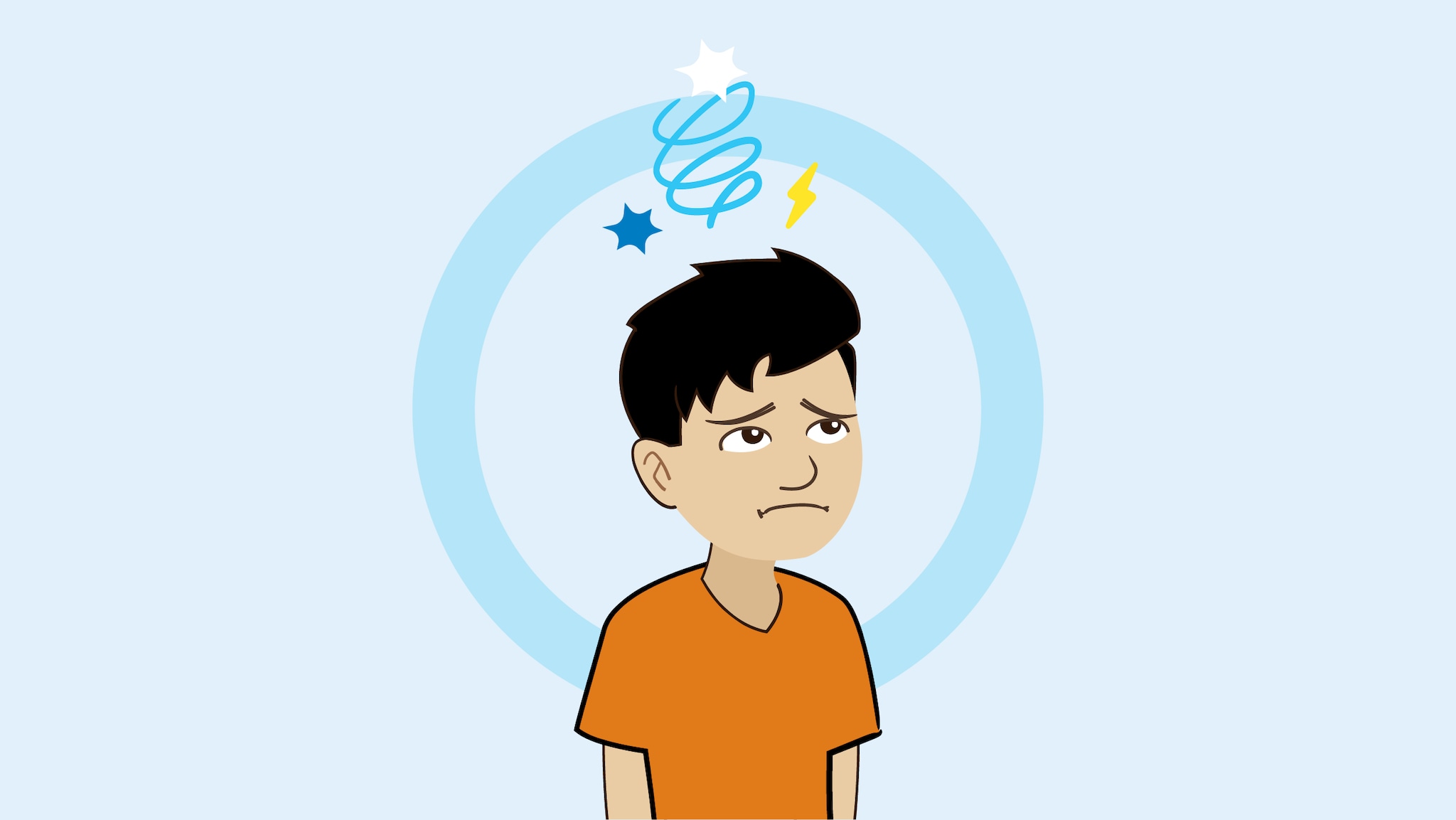
Watch for any concussion danger signs.
If your child experiences any concussion danger signs call 911 or go to the emergency department right away.
Monitor for concussion signs and symptoms.
If your child is not experiencing concussion danger signs, monitor them for concussion signs and symptoms. Symptoms of concussion are often most severe right after the injury. However, some concussion signs and symptoms may not appear or be noticed for hours or days.
You know what's normal for your child and what's not. Monitor them regularly and watch for changes in how they act or feel and share this information with their health care provider.
Within the first 24 to 48 hours after a possible concussion
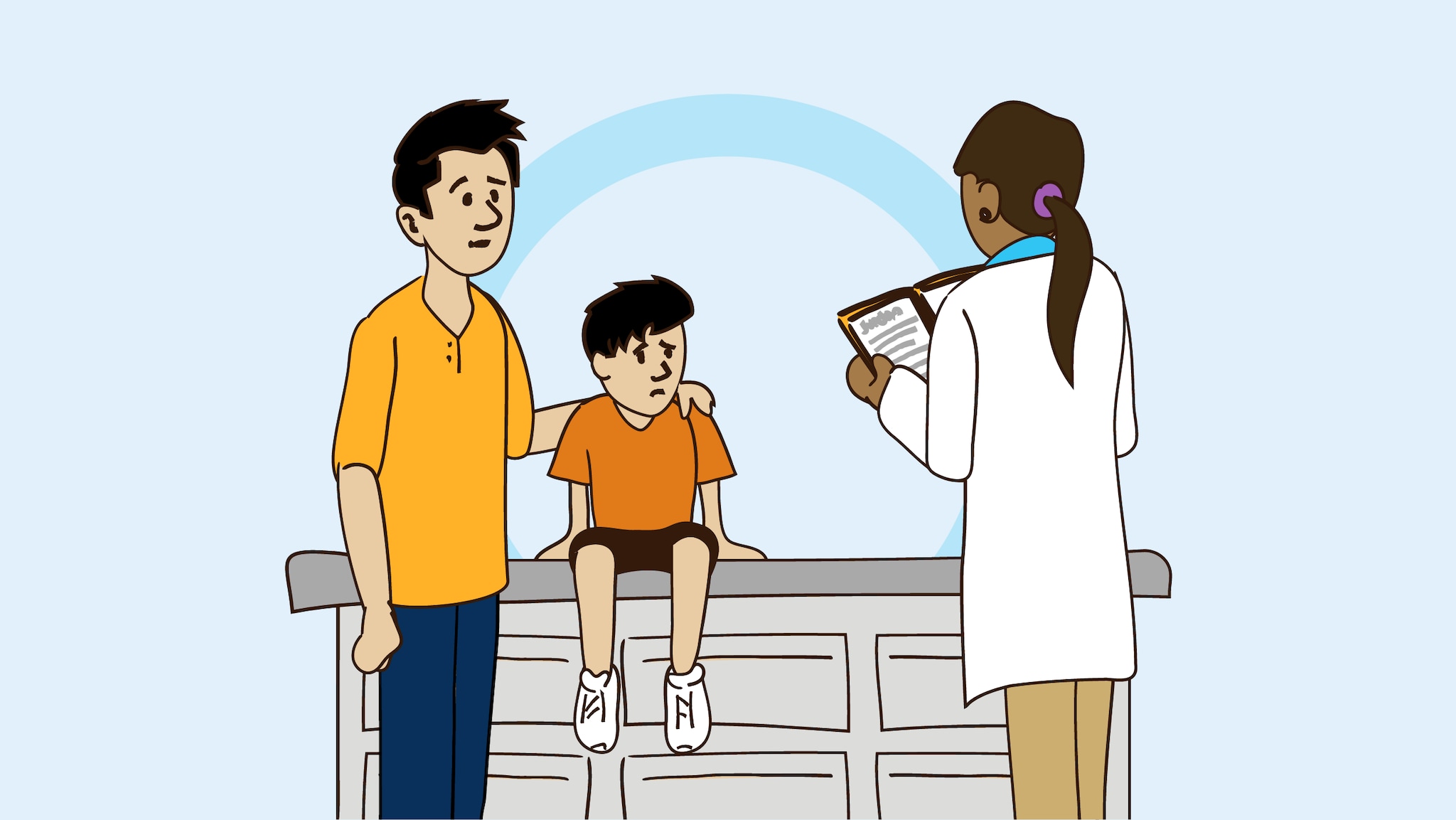
Get medical care
A child with a possible concussion needs to be seen by a health care provider. A health care provider can tell them if they have a concussion.
What to tell your child's health care provider
Be sure to tell the child's health care provider if they are taking medications—prescription, over-the-counter medicines, or natural remedies. When possible, share the following information:
- Cause of the injury and force of the hit or blow to the head or body
- Any loss of consciousness (passed out/knocked out) and if so, for how long
- Any memory loss right after the injury
- Any seizures right after the injury
- Number of previous concussions (if any)
Tests for concussion and brain injury
Health care providers check a child for a concussion by doing a physical exam and asking about their concussion symptoms. Your child may also need tests to help assess the child's learning and memory skills, the ability to pay attention or concentrate, and how quickly they can think and solve problems. These tests can help the child's health care provider identify the effects of the concussion. Most children will not need to get a scan of their brain (CT or MRI scan) after a concussion.1
After their check up with the health care provider
If your child is diagnosed with a concussion, their health care provider should:1
- Give you instructions to help with their recovery, including how to manage and monitor concussion symptoms.
- Provide recovery tips and treatments based on their symptoms.
- Share information about returning to school and the return-to-sports protocol.
Follow instructions from your child's health care provider carefully. Your child's brain is still healing and more vulnerable to the effects of another injury. Remember that even if a concussion doesn't seem serious now, it can affect your child later on. You have a key role in helping them stay safe and healthy for life.
Be sure to schedule a follow up appointment with their regular health care provider so that they can check in on your child's recovery.
Young children and children with disabilities may not be able to communicate or express how they are feeling.2 Their health care provider can adapt recovery guidance and supports to allow for eventual full return to participation in school, sports, and other activities.3
Within 2 days of a concussion
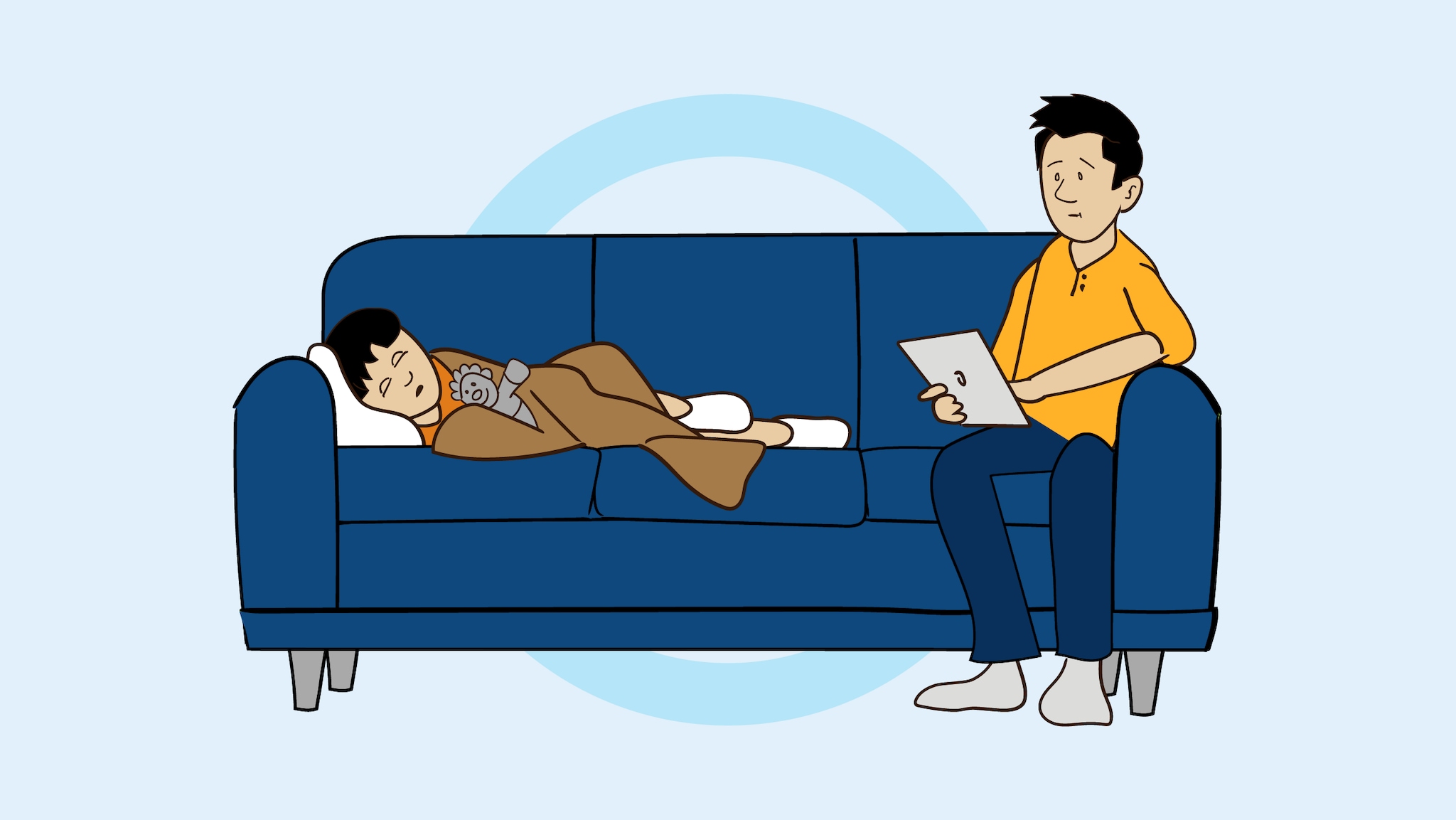
Concussion symptoms can make it hard to do regular activities. Making short-term changes to your child's daily activities can help them get back to a regular routine more quickly. Allow your child to rest if they need it. But don't make them stay in a dark room all day. Limit their screentime within the first 1 to 2 days, as well as activities that are physically or mentally challenging.14567
Start light physical activities (but no sports participation yet)
Have your child do light physical activity, like going for walks, even if they experience some mild symptoms. 4If symptoms worsen, your child should temporarily cut back on that activity. Be sure they avoid activities that put themselves at risk for another injury to the head and brain throughout their recovery.
Returning to school
Most children can return to school within 1 to 2 days of a concussion.4 Research has found delaying return to school may lead to a longer recovery.4 Ask your child's health care provider to fill in the CDC HEADS UP Letter to Schools. This letter provides strategies to help the school set up any needed support.
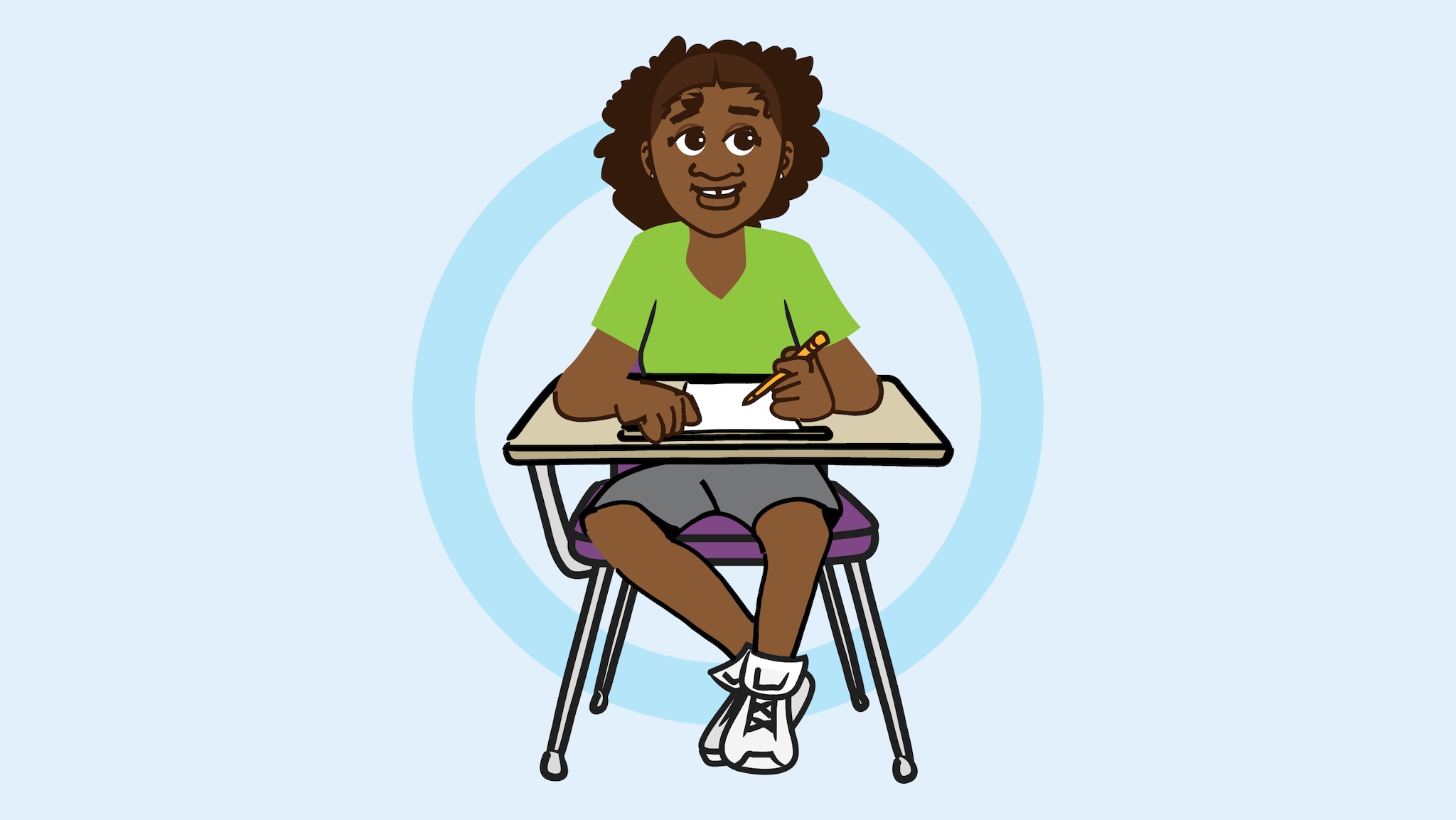
At first, your child may need rest breaks, homework help, and extra time for tests.1 As their symptoms decrease, the extra help or support can be removed. You can help your child get back to the classroom by talking about their concussion symptoms with their teachers, school nurses, and other school professionals who care for your child at school. When they understand the possible effects of a concussion, they can better provide your child with classroom supports and collaborate to meet your child's needs. They can also monitor your child's recovery and take action if needed.
See Returning to School After a Concussion webpage for more details. You can also get information and resources in our HEADS UP to Schools section for teachers, parents, school nurses, and other school professionals.
Within 2 to 4 weeks of a concussion
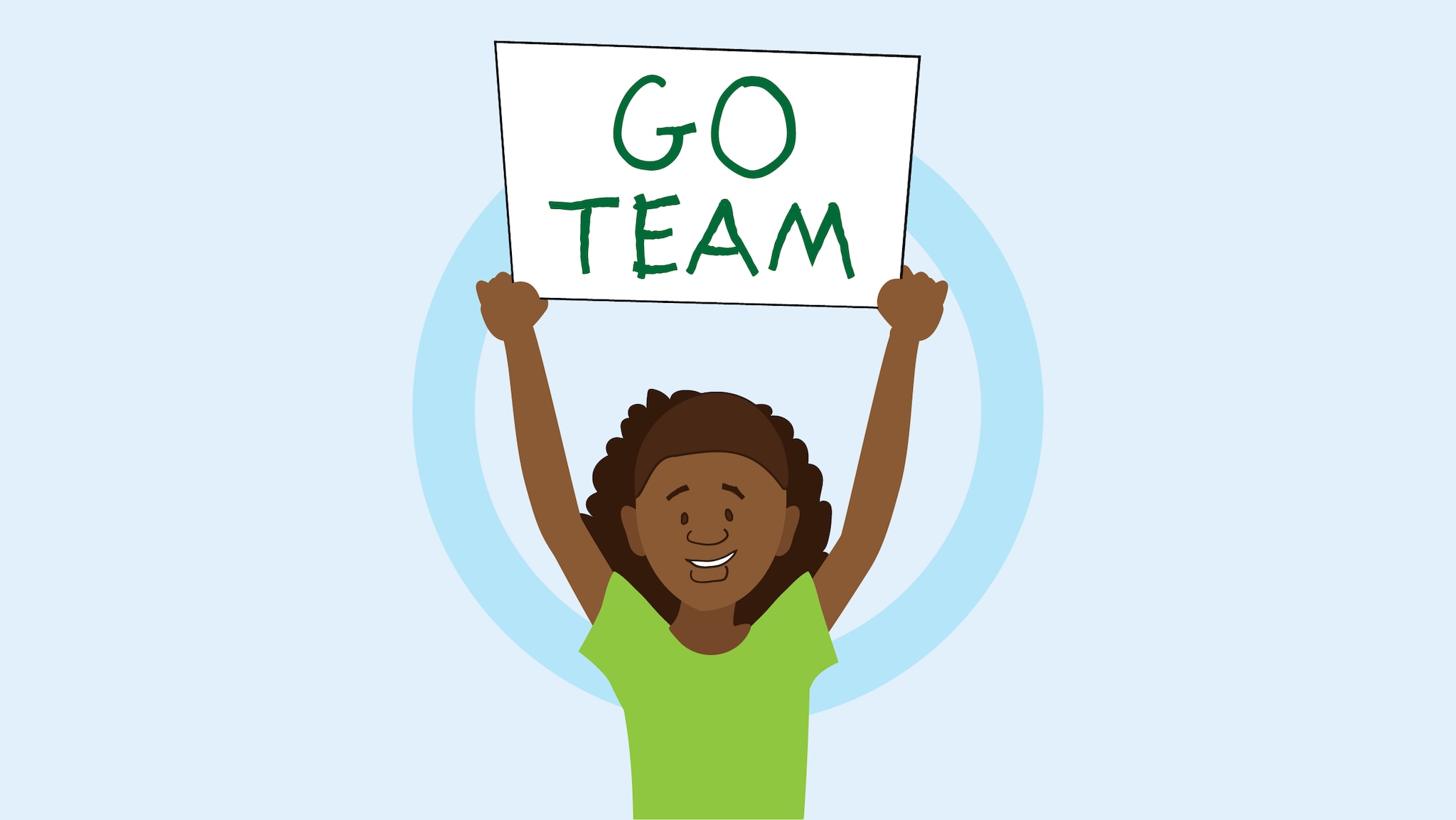
Most children with a concussion feel better within 2 to 4 weeks.8910 When your child's symptoms are mild and nearly gone, they can return to most regular activities. Recovery from a concussion is when your child is able to do all of their regular activities without experiencing any symptoms.
Some children have symptoms that effect their behavior, mood, memory, or emotions for months or longer.1112 Talk with their health care provider if symptoms do not go away or if they get worse after returning to regular activities.1
Check in on how your child is feeling
Your child may feel frustrated, sad, and even angry because they can't participate in usual activities like recreational activities or sports.13 They may also feel isolated from their friends and communities. These feelings are common after a concussion. Give your child time to talk with and stay connected to friends. Listen and talk with your child about these issues and offer your support and encouragement. Having support from family and friends can help with recovery.1
Be sure talk to their health care provider if your child feels anxious, sad, or hopeless. Also talk to them about any changes in mental health and emotions that get worse or don't go away. Your child's health care provider has treatments that can help.
Returning to sports
A child should only return to sports practices after a concussion with approval of their health care provider.14 Returning to sports is a multi-step process that can take a week or more to complete.14
The return-to-sports process can happen at the same time as the return-to-school process.414 However, an athlete should be back to all regular non-sports activities (without accommodations or support) before they finish the return-to-sports protocol.414
See the Returning to Sports After a Concussion webpage for more information.
After 2 to 4 weeks of a concussion
Watch your child closely for new, ongoing, or worsening symptoms. Tell your child's health care provider if you notice their symptoms are getting worse and don't go away. If your child has concussion symptoms that last longer than 2 to 4 weeks, their health care provider may refer them to a specialist with experience in treating brain injuries.4 Having a history of previous concussions or experiencing more severe symptoms right after the concussion increases the chance that a child will have a longer recovery or that the concussion will lead to ongoing or chronic health problems, including post-concussive syndrome.1516 Other factors that might delay recovery include:1131416
- Having a neurological, mental health disorder, or learning difficulties
- Having trouble with sleep
- Experiencing family and social stressors
Concussion recovery: dos and don’ts
Here's a list of quick tips on what to do and not do while your child is recovering from a concussion.
Do's
- Watch your child for new or worsening symptoms and contact your health care provider if needed. Ask your child's doctor or nurse about safe over-the-counter or prescription medications to help with symptoms.
- Let your child sleep as usual. Keep a set bedtime routine.
- Help your child stay in touch with family and friends during recovery and check in about how they are feeling. Watch out for emotional changes like anxiety, sadness, or hopelessness. Stay positive about their recovery.
- Share information about your child's concussion with siblings, teachers, counselors, babysitters, and others. When they interact with your child, they can better meet your child's needs.
- Let your child do light physical activity, like taking short walks, during their recovery.
- Keep your child from playing sports or other activities, like riding a bike or skateboarding, until your health care provider says it's okay.
- Support your child's individual recovery process, which is different for every child. Most children have a good recovery after a concussion.
Don'ts
- Don't ignore concussion danger signs or symptoms that are getting worse and don't go away.
- Don't prevent your child from sleeping.
- Don't give your child medication to help them sleep, or other medications without asking your child's doctor or nurse.
- Don't isolate your child in a dark room during recovery or prevent them from staying in touch with others.
- Don't make your child lay on the couch or in bed all day.
- Don't let your child return to playing sports on the same day the concussion occurred.
- Don't rush the recovery process or expect it to happen a certain way.
Stay connected to others during your child’s recovery
There are many organizations who can help you and your child as they recover. You do not have to do it alone. If you do not think your child is getting better, tell their health care provider.
See Where to Get Help for organizations that can provide support for children living with a brain injury and their families.
- Lumba-Brown A, Yeates KO, Sarmiento K, et al. Centers for Disease Control and Prevention guideline on the diagnosis and management of mild traumatic brain injury among children. JAMA Pediatr. 2018;172(11):e182853-e182853. doi:10.1001/jamapediatrics.2018.2853
- Virginia Concussion Initiative. Concussion Recognition and Response for those with Intellectual Disabilities or Developmental Disabilities. Accessed March, 2024. https://concussion.gmu.edu/sites/default/files/2021-06/Concussion%20Recognition%20and%20Response%20%28Intellectual%20Disabilities%29%20061721.pdf
- Special Olympics Health. Inclusive Health Principles and Strategies: How to make your Practices Inclusive of People with Intellectual Disabilities. Accessed March 25, 2024. https://ihc.brightspotcdn.com/b7/71/20bb81c441f29dd217e6787f34fa/inclusive-health-principles-and-strategies-make-your-practices-inclusive.pdf
- Reed N, Zemek R, Dawson J, et al. Living guideline for pediatric concussion care (PedsConcussion). 2022. https://pedsconcussion.com/
- Leddy JJ, Burma JS, Toomey CM, et al. Rest and exercise early after sport-related concussion: a systematic review and meta-analysis. Br J Sports Med. Jun 2023;57(12):762-770. doi:10.1136/bjsports-2022-106676
- Macnow T, Curran T, Tolliday C, et al. Effect of Screen Time on Recovery From Concussion: A Randomized Clinical Trial. JAMA Pediatr. 2021;175(11):1124-1131. doi:10.1001/jamapediatrics.2021.2782
- Cairncross M, Yeates KO, Tang K, et al. Early Postinjury Screen Time and Concussion Recovery. Pediatrics. 2022;150(5)doi:10.1542/peds.2022-056835
- Eisenberg MA, Meehan WP, 3rd, Mannix R. Duration and course of post-concussive symptoms. Pediatrics. Jun 2014;133(6):999-1006. doi:10.1542/peds.2014-0158
- Eisenberg MA, Andrea J, Meehan W, Mannix R. Time interval between concussions and symptom duration. Pediatrics. Jul 2013;132(1):8-17. doi:10.1542/peds.2013-0432
- Barlow KM, Crawford S, Stevenson A, Sandhu SS, Belanger F, Dewey D. Epidemiology of postconcussion syndrome in pediatric mild traumatic brain injury. Pediatrics. 2010;126(2):e374-e381.
- van Ierssel J, Ledoux AA, Tang K, et al. Symptom Burden, School Function, and Physical Activity One Year Following Pediatric Concussion. J Pediatr. Jan 2021;228:190-198.e3. doi:10.1016/j.jpeds.2020.08.061
- Rivara FP, Koepsell TD, Wang J, et al. Disability 3, 12, and 24 Months After Traumatic Brain Injury Among Children and Adolescents. Pediatrics. 2011;128(5):e1129-e1138. doi:10.1542/peds.2011-0840
- Burns C, Jo J, Williams K, et al. Subclinical, long-term psychological symptoms following sport-related concussion: are athletes more depressed than we think? Brain Inj. Apr 4 2024:1-8. doi:10.1080/02699052.2024.2334352
- Patricios JS, Schneider KJ, Dvorak J, et al. Consensus statement on concussion in sport: the 6th International Conference on Concussion in Sport–Amsterdam, October 2022. British Journal of Sports Medicine. 2023;57(11):695-711. doi:10.1136/bjsports-2023-106898
- Babikian T, Merkley T, Savage RC, Giza CC, Levin H. Chronic Aspects of Pediatric Traumatic Brain Injury: Review of the Literature. J Neurotrauma. Dec 1 2015;32(23):1849-60. doi:10.1089/neu.2015.3971
- Polinder S, Cnossen MC, Real RGL, et al. A Multidimensional Approach to Post-concussion Symptoms in Mild Traumatic Brain Injury. Frontiers in neurology. 2018;9:1113. doi:10.3389/fneur.2018.01113
